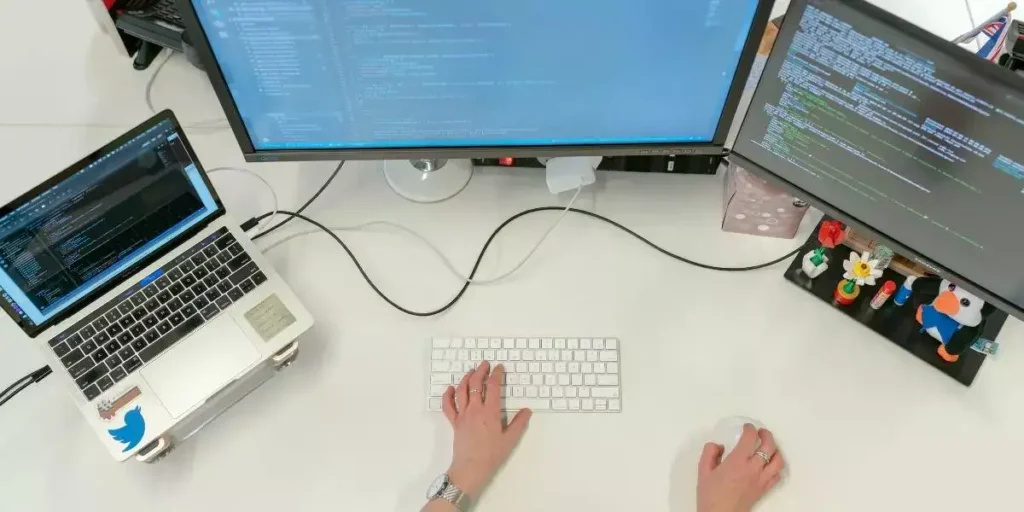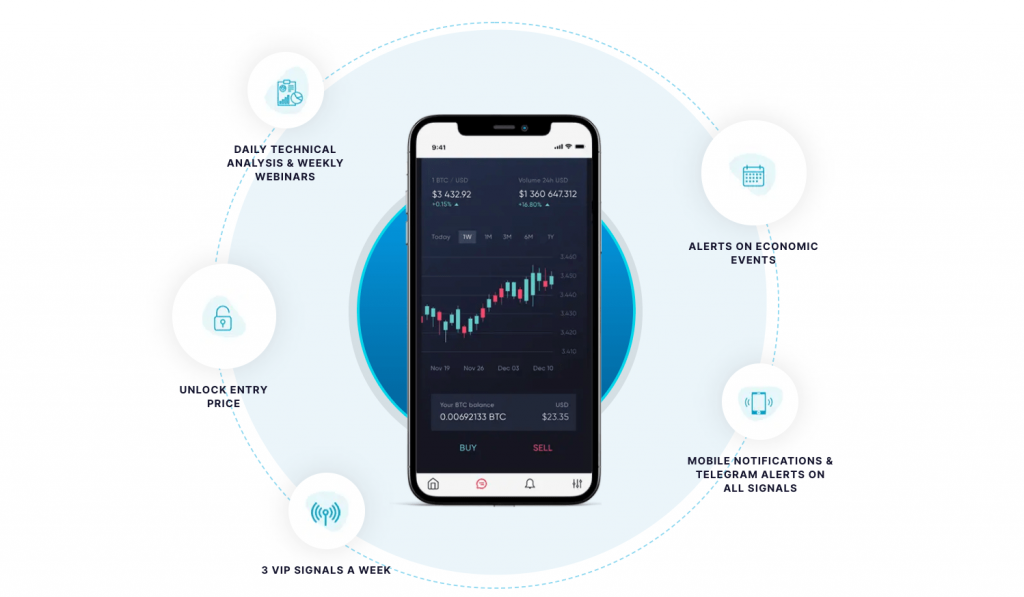Have you ever wished you could predict the future of the market? While a crystal ball may be a fantasy, AI-powered tools are emerging as a powerful force in option trading, offering new possibilities for investors seeking to navigate the complexities of this sophisticated financial instrument.

Image: mysaasmate.com
The world of option trading is inherently fraught with risk and uncertainty. Predicting market movements, understanding the intricacies of volatility, and making calculated decisions under pressure are just some of the challenges traders face. AI-powered tools, however, are changing the game by leveraging the power of machine learning and big data to analyze market trends, identify patterns, and develop strategies. This article explores the exciting possibilities of AI in option trading, examining its benefits, limitations, and the future it holds for investors.
Demystifying AI in Option Trading
Imagine a tool that sifts through vast quantities of financial data, identifying subtle correlations and predicting market movements with greater accuracy than human analysts. That is the promise of AI-powered tools in option trading. These tools utilize machine learning algorithms trained on massive datasets to analyze historical market data, economic indicators, news sentiment, and other relevant factors to predict future price movements.
This predictive capability can be instrumental for option traders by:
- Identifying profitable trading opportunities: AI algorithms can analyze market patterns and identify potential price movements, helping traders capitalize on both bullish and bearish market trends.
- Optimizing portfolio allocation: AI-powered tools can suggest the best option strategies and asset allocation based on risk tolerance and investment goals, creating more diversified and balanced portfolios.
- Improving risk management: By evaluating potential market scenarios and quantifying risk, AI tools help traders make more informed decisions, potentially mitigating losses and maximizing returns.
Types of AI Tools for Option Trading
The field of AI-powered option trading tools is evolving rapidly, with a range of solutions catering to different needs and expertise levels. Here are some of the most prominent categories:
1. Predictive Analytics Platforms
These platforms utilize advanced machine learning algorithms to analyze vast quantities of data, including historical market prices, news sentiment, economic indicators, and social media chatter, to predict future price movements. They provide traders with insights into market trends, potential support and resistance levels, and volatility forecasts. Some platforms may also offer customized recommendations based on individual investment parameters and risk tolerance.

Image: www.forexcrunch.com
2. Algorithmic Trading Bots
AI-powered trading bots automatically execute trades based on predefined rules and parameters. These bots can execute trades faster than humans, capitalizing on short-term price fluctuations and market opportunities that may be missed by manual trading. They can be programmed to follow specific strategies, such as trend-following or arbitrage, allowing traders to automate their trading activities and free up time for other tasks.
3. Sentiment Analysis Tools
These tools use natural language processing (NLP) to analyze news articles, social media posts, and other online content to gauge market sentiment. By understanding the overall sentiment surrounding a particular asset or industry, traders can gain insights into potential price movements. For instance, if a large number of investors are expressing positive sentiment about a company, it may indicate that the stock price is likely to rise, making it a good opportunity to buy call options.
4. Option Pricing Models
AI algorithms can be used to refine traditional option pricing models, such as the Black-Scholes model, by incorporating additional factors and data sources. This can lead to more accurate option pricing, helping traders identify mispriced options and develop arbitrage opportunities.
Unveiling the Potential: Real-World Examples
AI-powered tools are not simply theoretical concepts; they are already making a tangible impact on the option trading landscape. Here are some real-world examples highlighting their practical applications:
1. Automated Option Trading
Quantitative hedge funds and institutional investors are increasingly relying on AI-driven algorithms to execute complex option trading strategies. These algorithms can analyze massive datasets, identify profitable opportunities, and execute trades in milliseconds, often outperforming human traders in volatile market conditions.
2. Sentiment-Based Option Strategies
AI-powered sentiment analysis tools are enabling traders to develop strategies based on market sentiment. For example, traders can use these tools to identify stocks with strong positive sentiment, potentially indicating an upcoming price surge. They can then buy call options on these stocks, hoping to capitalize on the expected price movement.
3. Personalized Option Recommendations
Some AI-powered platforms offer personalized option recommendations based on individual investor profiles, financial goals, and risk tolerance. These platforms utilize machine learning algorithms to analyze historical data, market trends, and the investor’s past trading behavior to suggest appropriate option strategies suited to their unique circumstances.
Navigating the Challenges: The Flip Side of AI
While AI tools hold immense potential for option traders, it’s crucial to acknowledge the challenges and limitations that come with their use:
1. Data Dependency
AI algorithms heavily rely on historical data to make predictions. If the data used to train these algorithms is incomplete, biased, or outdated, their predictions may be inaccurate. It is essential to ensure that the data used is of high quality and representative of the market conditions being analyzed.
2. Black Box Problem
The decision-making processes of some AI algorithms can be difficult to understand, leading to what’s known as the “black box problem.” It can be challenging to determine why an algorithm made a particular prediction or trade, making it difficult to assess the rationale behind its decisions.
3. Ethical Considerations
The use of AI in finance raises various ethical concerns, such as the potential for algorithmic bias, the impact on human jobs, and the risk of market manipulation. It’s crucial to ensure that AI tools are developed and used responsibly and ethically.
The Future of AI in Option Trading
The integration of AI into option trading is poised to continue its trajectory, ushering in a new era of sophisticated and automated strategies. Emerging trends include:
1. Hyper-personalized AI Tools
AI tools tailored to individual trading styles and risk profiles will become increasingly prevalent. These platforms will leverage advanced machine learning algorithms to provide customized strategies and real-time insights, making trading more accessible and efficient for all levels of investors.
2. Integration with Blockchain Technology
AI and blockchain technology are increasingly converging, creating opportunities for decentralized and transparent option trading platforms. Blockchain-based AI tools can facilitate secure and efficient transactions, enabling faster settlements and reducing the risk of fraud.
3. Enhanced Risk Management Strategies
AI will play a crucial role in developing advanced risk management strategies. By analyzing market data and investor behavior, AI tools can identify potential risk factors and proactively mitigate losses, ensuring more robust financial security.
Ai Tools For Option Trading
Conclusion
AI tools are revolutionizing the option trading landscape, offering traders unprecedented opportunities to capitalize on market trends, optimize portfolio allocation, and improve risk management. While challenges remain, the potential benefits of AI in option trading are significant. As the technology continues to evolve, it’s likely to play an even more prominent role in shaping the future of this complex and dynamic financial market. Embrace this opportunity to explore the world of AI-powered option trading, but remember to approach it with a blend of excitement and caution. Conduct thorough research, understand the nuances of the tools you use, and always prioritize responsible trading practices. The journey into the future of option trading begins with an informed and well-calculated step.






